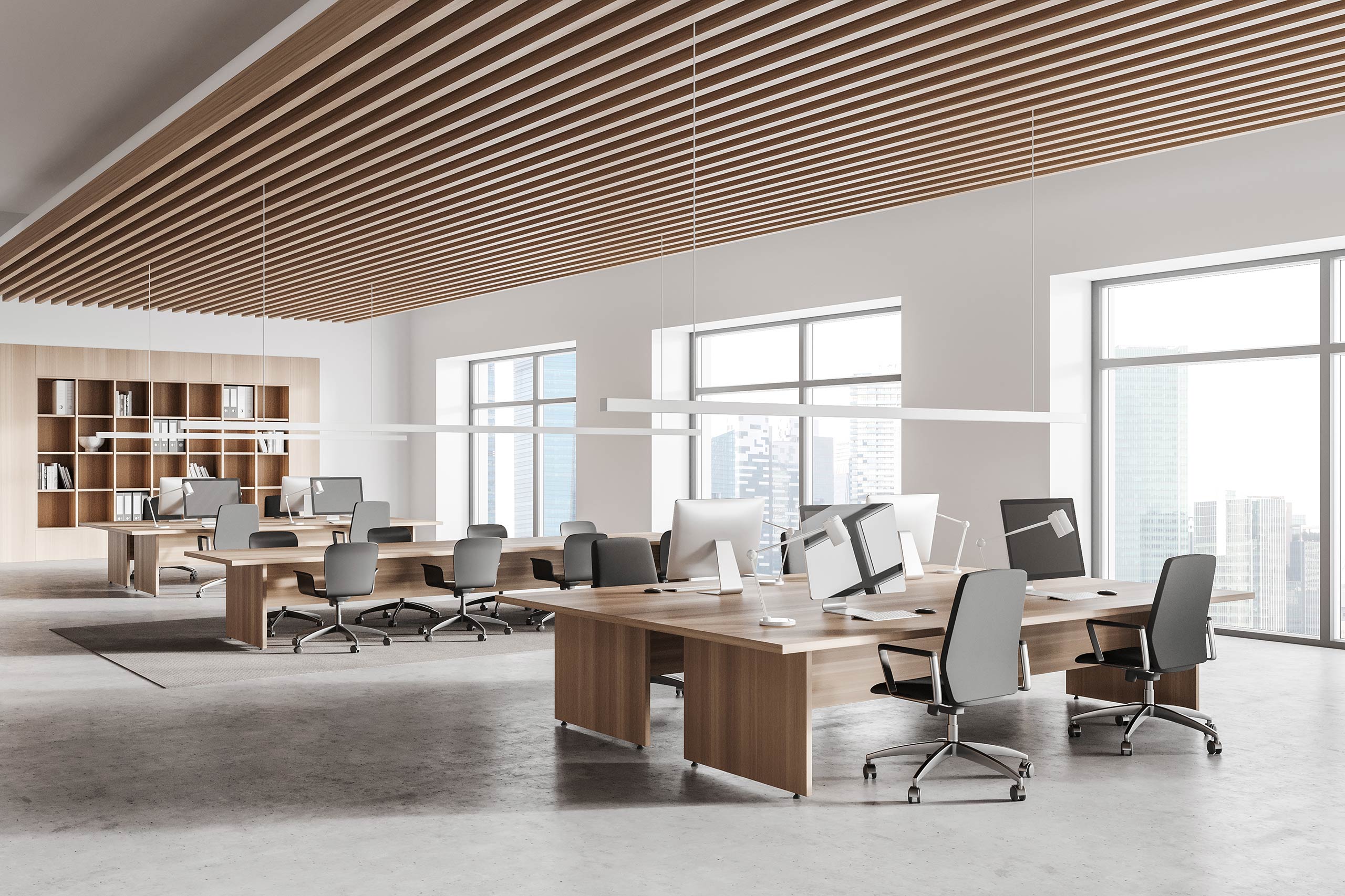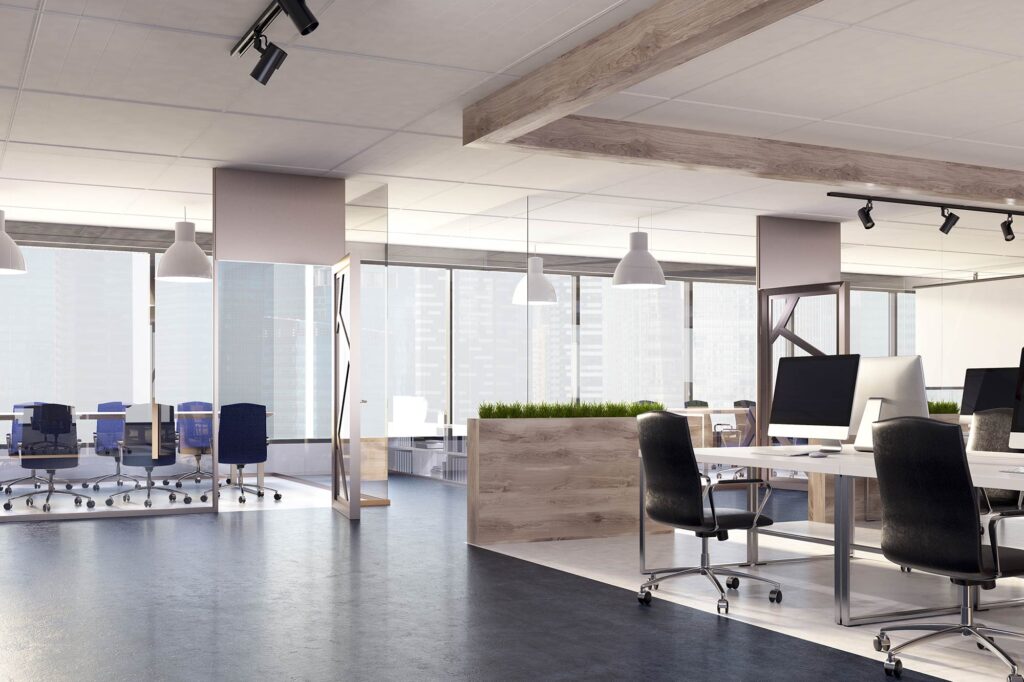Types Of Suspended Acoustic Ceilings

Acoustics make a huge impact.
Whether you’re building something new or starting a renovation, you want to make sure it’s done right: durability, functionality, and aesthetics of a space are all key factors to this process. Don’t forget about the ceilings though—acoustics are commonly overlooked, even though they can make or break a quality space. When starting a construction project, always remember to choose your ceilings based on height, texture, sense of volume, and geometry.
What are acoustic ceilings?
Suspended acoustic ceilings are secondary ceilings hung below the structural ceiling for room acoustics and aesthetics. Acoustic ceilings have various benefits, perhaps the most beneficial being that they hide plumbing, mechanical, and electrical installations from view. But no worries—these installations are still easily accessible for maintenance!
Suspended ceilings & sound performance
When it comes to sound control and design, suspended acoustic ceilings are a certain winner. Here are a few ways acoustic ceilings can benefit the sound in your space:
- Sound diffusion. Since energy waves bounce evenly, it is important to have a diffusive sound for equal space reverberation.
- Sound absorption. Absorbing material takes in wave energy with sound and transforms some of this energy into heat.
- Sound reflection. When energy waves hit material, part of the energy bounces back directly and part of it reverberates. Using suspended acoustic ceilings allow for good sound absorption without compromising interior design.
Materials used
There are many materials you can use for suspended acoustics ceilings, all offering their own pros and cons. The most common materials fall into the following categories:
- Mineral. Mineral fibers are lower-priced and are mainly used in retail or office buildings and are made from mineral fibers, clay, perlite, and recycled paper.
- Fiberglass. This type of material offers a wide variety of products and uses while looking pleasing to the eye by mimicking painted drywall.
- Metal. Metal ceilings reflect sound well but don’t absorb it—they require holes, slots, or other openings to let sound pass through and are typically made from aluminum.
- Wood. Like metal, wood also lacks sound absorption, but is a designer favorite due to the many species choices.
- Specialty materials. Specialty ceiling materials include a range of materials—acoustic foams, plyethylene felts, cementitious wood fiber, PVC stretch, and reinforced gypsum tiles.
Mineral fibers and glass fibers are the two most popular sound absorption materials for commercial use, aside from sound studios or other offices that need more extensive sound absorption materials.
Shapes used
Once again, suspended acoustic ceilings win again by meeting design goals. Suspended ceiling materials can be made into many different shapes to fit your desired look including tiles, linear panels, grille and baffle, and cubes. You can even find special shapes like curved, pyramid, or interwoven if you really want to be creative—the sky is the limit!
Pros & Cons
Just like anything else, there are always pros and cons associated with different types of materials depending on what you’re looking for. The main differences to pay attention to include color and texture options, cost, fire rating, sustainability, NRC, and CAC.
NRC
The Noise Reduction Coefficient (NRC) measures the amount of sound absorption a material offers. An NRC rating of 0 means a material has perfect reflection, and a rating of 1 means perfect absorption.
Fire Rating
Commercial building codes usually require flame spread materials or sprinklers in case of a fire—always check your local and state building codes to help with your ceiling decision.
Sustainability
Sustainability is always attractive—MARSTM Acoustical ceiling tiles are made from 69% – 81% recycled materials to ensure a healthy and sustainable product and help maximize LEED recycled content contribution.
Color & Texture
Aesthetics and design should never be compromised for a durable product. At USG, you can have it all—find the highest quality ceiling tiles in a variety of colors and textures to meet any aesthetic.
Innovative Solutions & Limitless Options With USG At Western Interior Supply
When doing an office remodel or working on a commercial building, always keep ceilings in mind. At Western Interior Supply, we provide only the best suspended acoustic ceiling products—that’s why we carry USG ceiling tiles.
No matter your project needs, USG has ceiling panels that can deliver. Their commercial ceiling tiles come in a wide range of materials and appearances. From durable Sheetrock ceiling panels to more elegant options, there’s something for practically any type of property.
